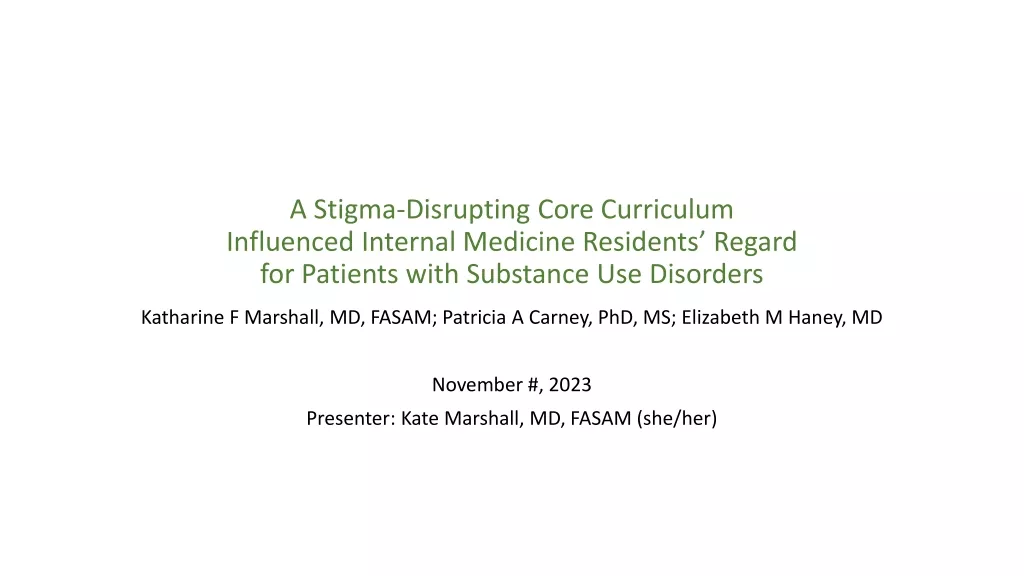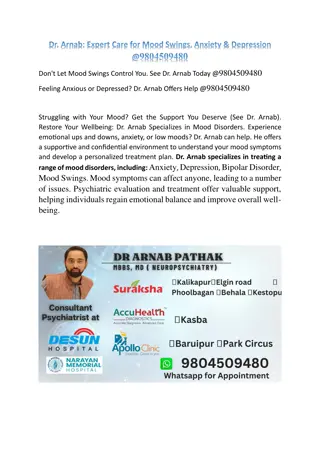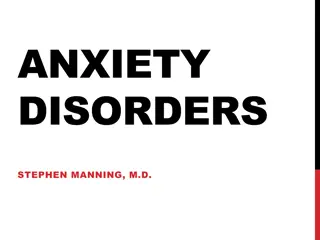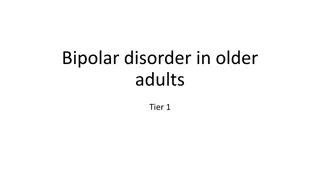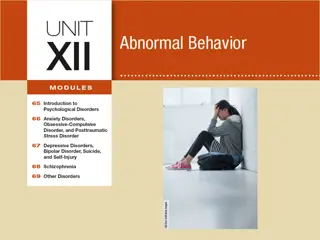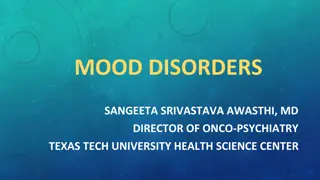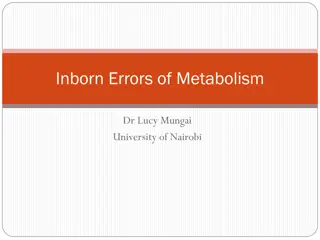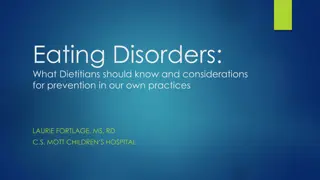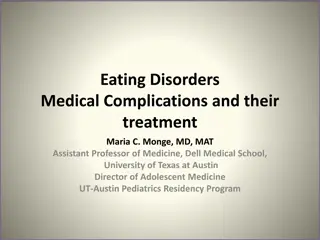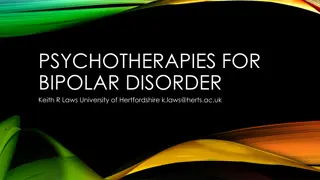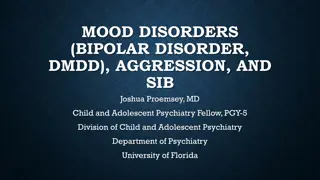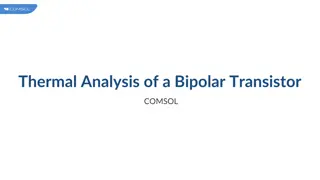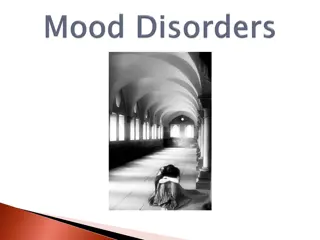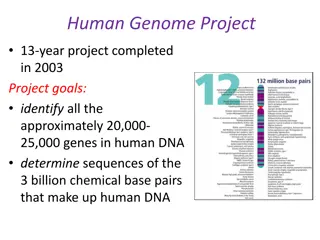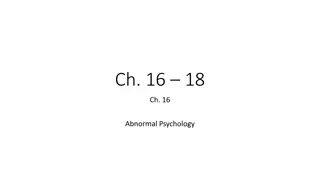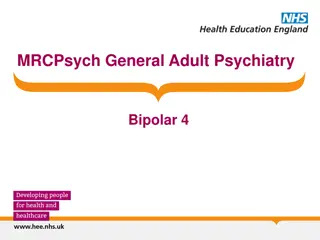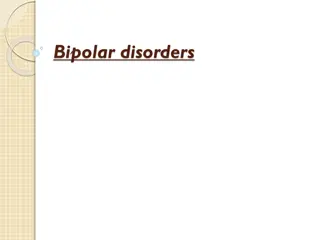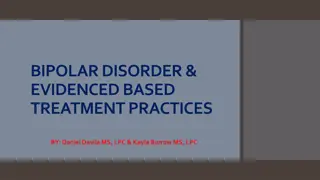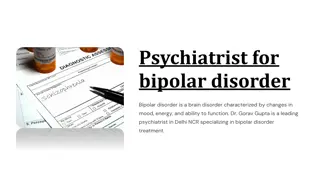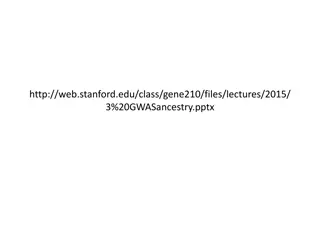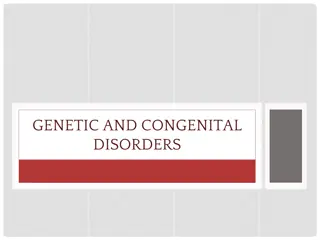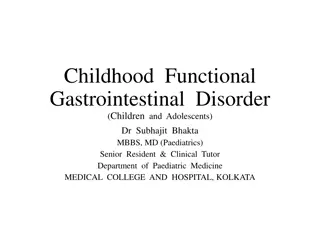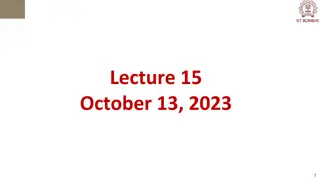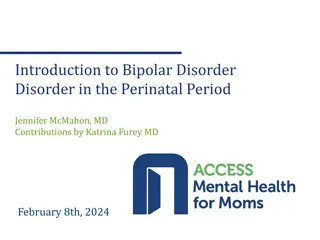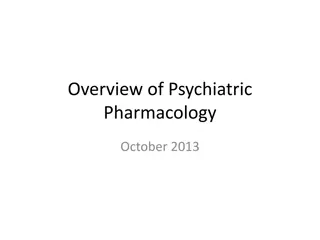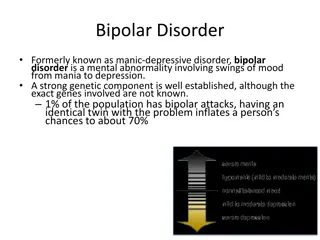Gynecological disorders
Common gynecological disorders including menstrual disorders and abnormal uterine bleeding. Find out about the nursing role in diagnosing and treating these disorders.
3 views • 22 slides
Enhancing Internal Medicine Residents' Approach to Patients with Substance Use Disorders
This study focuses on developing and implementing a stigma-disrupting curriculum to improve internal medicine residents' attitudes and knowledge regarding patients with substance use disorders. By addressing provider stigma and enhancing preparedness, the aim is to promote positive regard and increa
1 views • 27 slides
Exploring Mental Health Categories and Disorders
In today's categories, we delve into themes like stigma, recovery, myths, and facts surrounding mental health. We discuss various disorders including psychotic disorders and observable signs like hallucinations, delusions, and flat affect. Discover the signs and symptoms of mood disorders and high/l
1 views • 71 slides
Feeling Down Dr. Arnab Can Help with Mood Issues @9804509480. Arnab Can Help with Mood Issues @9804509480
Struggling with Your Mood? Get the Support You Deserve (See Dr. Arnab). Restore Your Wellbeing: Dr. Arnab Specializes in Mood Disorders. Experience emotional ups and downs, anxiety, or low moods? Dr. Arnab can help. He offers a supportive and confidential environment to understand your mood symptoms
1 views • 2 slides
Overview of Human Genetic Disorders
Human genetic disorders encompass a range of conditions, from recessive disorders like cystic fibrosis to dominant disorders such as Huntington's disease. Examples include cystic fibrosis, Huntington's disease, and sickle-cell anemia. Understanding genetic disorders involves research and awareness o
0 views • 10 slides
Understanding Anxiety Disorders in DSM-5
Anxiety disorders encompass a range of conditions, from separation anxiety to social phobia and generalized anxiety disorder. The DSM-5 has re-conceptualized these disorders, grouping OCD in its own category and moving PTSD to trauma-related disorders. Recognizing symptoms and seeking appropriate tr
1 views • 96 slides
Understanding Bipolar Disorder in Older Adults
Bipolar disorder in older adults can present challenges due to potential late-onset diagnosis and missed symptoms. Recognizing symptoms of mania and depression, understanding other possible causes, and being aware of associated risks are crucial. Learn how to help by contacting a GP, monitoring medi
0 views • 7 slides
Overview of Anxiety and Related Disorders
Anxiety disorders, such as PTSD, panic disorders, phobias, agoraphobia, and OCD, are characterized by varying degrees of fear and distress. Anxiety is a normal response to danger, but when it becomes chronic, it can lead to debilitating conditions. PTSD occurs post-trauma, panic disorders involve in
1 views • 42 slides
Understanding Depressive Disorders and Bipolar Disorder
Depression is prevalent among students and individuals in the US. Major depressive disorder and persistent depressive disorder are characterized by varying degrees of depressive symptoms lasting for different durations. The diagnostic criteria include signs of depression persisting for specific peri
1 views • 57 slides
Understanding Mood Disorders and Assessment in Psychiatry
Mood disorders, such as Major Depressive Disorder and Bipolar Disorder, can significantly impact a person's life. They are characterized by disruptions to functional status and relationships. Assessing these disorders involves examining psychiatric history, medical background, and lab assessments li
0 views • 100 slides
Understanding Somatic Symptom Disorders, Conversion Disorders, and Dissociative Disorders
Somatic symptom disorders manifest as physical symptoms without apparent cause, while conversion disorders involve specific physical symptoms incompatible with medical conditions. Illness anxiety disorder involves interpreting normal sensations as disease symptoms. Dissociative disorders lead to a s
1 views • 41 slides
Understanding Bipolar Transistor Configurations for Electronic Circuits
Explore the three common configurations - Common Base, Common Emitter, and Common Collector - for Bipolar Transistors in electronic circuits. Each configuration offers unique characteristics such as voltage gain, current gain, and impedance levels, impacting the signal processing and amplification c
0 views • 27 slides
Understanding Inborn Errors of Metabolism and Metabolic Disorders
Inborn Errors of Metabolism (IEM) are genetic disorders that disrupt metabolic pathways, leading to substrate accumulation or product deficiency. These disorders can be classified based on toxic accumulation, protein metabolism, carbohydrate intolerance, lysosomal storage issues, energy production d
0 views • 29 slides
Understanding Bipolar Disorder in Older Adults
Bipolar disorder in older adults can have a later onset, often after the age of 50, with episodes of mania and depression. Recognizing symptoms like excessive energy, inability to sleep, and cognitive impairment is crucial. Late-onset bipolar disorder differs from early-onset in familial illness rat
1 views • 12 slides
Understanding Co-occurring Mental and Physical Health Conditions
Co-occurring mental and physical health disorders are prevalent and require an integrative multidisciplinary approach for effective assessment and treatment. This holistic approach helps address the complexity of managing multiple disorders in an integrated healthcare setting. Through a multi-direct
1 views • 37 slides
Understanding Functional GI Disorders: A Comprehensive Overview
Functional GI disorders encompass a range of conditions affecting the gastrointestinal system, such as irritable bowel syndrome and disorders of the gut-brain interaction. These disorders are characterized by no structural abnormalities but are influenced by factors like motility disturbance, viscer
0 views • 42 slides
Understanding Genetic Disorders and Their Impact on Health
Genetic disorders are caused by abnormalities in genes or chromosomes, leading to various health conditions. Inherited disorders can be passed down from parents to children, affecting physical makeup and processes in the body. In India, there is a high prevalence of genetic disorders, particularly i
1 views • 12 slides
Understanding Eating Disorders: Types, Signs, Effects, and Recovery
Eating disorders are mental disorders characterized by unhealthy eating habits and can have severe physical and psychological consequences. This article explores the definition of eating disorders, signs to look out for, different types such as Anorexia Nervosa, Bulimia Nervosa, Pica, and Purging Di
0 views • 10 slides
Understanding Eating Disorders: Insights for Dietitians
Eating disorders are complex neurobiological conditions that are not merely about control or weight management. These disorders can affect individuals of all genders, body sizes, and socioeconomic backgrounds. Dietitians play a crucial role in identifying, assessing, and treating eating disorders, a
0 views • 41 slides
Understanding Eating Disorders: Medical Complications and Treatment
This presentation by Dr. Maria C. Monge covers the common eating disorders in teenage patients, potential medical complications, and the role of the medical team in treatment. It includes definitions of disorders like Anorexia Nervosa, Bulimia Nervosa, and Binge Eating Disorder according to DSM-5 cr
0 views • 60 slides
Psychotherapies for Bipolar Disorder - Evidence-Based Interventions
This content discusses psychotherapies for bipolar disorder, including managing bipolar depression and evidence-based manuals. It emphasizes the importance of psychological interventions tailored for bipolar disorder to effectively reduce relapse and manage symptoms. The content also highlights the
0 views • 9 slides
Understanding Bipolar Disorder in Children and Adolescents
Bipolar disorder in young individuals is characterized by mood swings between manic and depressive states, with various subtypes such as Bipolar I, Bipolar II, and Cyclothymia. Clinical characteristics include hypomania and mania, which present with distinct symptoms such as elevated mood, increased
0 views • 35 slides
Understanding Neurodevelopmental Disorders in Childhood and Adolescence
Neurodevelopmental disorders in childhood and adolescence encompass a range of conditions including intellectual disabilities, communication disorders, autism spectrum disorder, and attention deficit/hyperactivity disorder. These disorders impact cognitive development, adaptive functioning, and comm
0 views • 30 slides
Thermal Analysis of a Bipolar Transistor Using COMSOL
This model utilizes a COMSOL simulation to analyze the thermal behavior of a bipolar transistor. The heat transfer within the device is calculated to determine the temperature distribution. Various plots, such as the Gummel plot and current gain curve, illustrate the collector and base currents as f
1 views • 11 slides
Understanding Sleep Disorders: Classification and Diagnosis
Sleep disorders encompass various conditions affecting sleep patterns and quality. They are classified into categories such as insomnia, sleep-related breathing disorders, central disorders of hypersomnolence, circadian rhythm sleep-wake disorders, parasomnias, and sleep-related movement disorders.
0 views • 32 slides
Understanding Grief and Depressive Disorders: A Comparative Analysis
Grief and depressive disorders share similarities but also have distinct differences. Grief is a universal emotional state following loss, while depressive disorders involve prolonged mood disturbances. The stages of grief include denial, anger, bargaining, depression, and acceptance, with intervent
0 views • 79 slides
Understanding Genetic Disorders and the Human Genome Project
The Human Genome Project, completed in 2003, aimed to identify all human genes and DNA sequences. Genetic disorders, like autosomal disorders and Huntington's disease, can result from mutations at different levels, affecting single genes, chromosomes, or multiple genes. Albinism and cystic fibrosis
0 views • 37 slides
Understanding Abnormal Psychology: Disorders, Symptoms, and Treatments
Explore the world of abnormal psychology through the lens of different disorders like depression, anxiety, and phobias. Learn about the definitions of abnormal behavior, DSM-V classifications, and various types of psychological disorders. Delve into the complexities of mental health conditions such
0 views • 39 slides
Understanding Bipolar Disorder: Course, Prognosis, and Treatment
Develop a comprehensive understanding of Bipolar disorder, including its course, prognosis, and risk factors for poor outcomes. Explore the prevalence, time course, and intensity of the disorder, as well as different types and changes in presentation over time. Gain insights from expert-led sessions
0 views • 29 slides
Understanding Bipolar Disorders and Other Related Conditions
Bipolar disorders encompass a range of mood and behavioral disturbances, characterized by fluctuations between mania and depression. Other conditions like mood disorders, dysthymia, cyclothymia, and grief reactions are also discussed, along with management strategies involving mood stabilizers and c
0 views • 8 slides
Understanding Bipolar Disorder and Evidence-Based Treatment Practices
This presentation by Daniel Davila, MS, LPC, and Kayla Burrow, MS, LPC delves into the complexities of bipolar disorder, potential crisis outcomes, and mental illness management through evidenced-based treatment practices. Topics covered include bipolar diagnosis, assessing disorder lethality, treat
0 views • 44 slides
Psychiatrist for bipolar disorder
Bipolar Disorder is a brain disorder characterized by extreme mood changes; manic or hypomanic episodes and mixed episodes with depressive episodes. In the following blog post, the best psychiatrist for bipolar disorder treatment, Dr. Gorav Gupta, el
0 views • 7 slides
Overview of Classification of Psychiatric Disorders
Psychiatric disorders are illnesses with various manifestations that impact functioning due to disturbances in biological, social, genetic, and other factors. Two key classification systems, ICD-10 and DSM-5, categorize over 200 types of psychiatric illnesses. The ICD-10 includes categories like org
0 views • 18 slides
Understanding Genetic Variants Associated with Bipolar Disorder and Schizophrenia
This material covers the genetic variants linked to bipolar disorder (BD) and schizophrenia, focusing on the rs1064395 variant in the neurocan gene (NCAN). The study analyzed a cohort of 682 patients with BD and 1300 controls to identify associations with the disorder. The presentation emphasizes th
0 views • 22 slides
Overview of Genetic and Congenital Disorders and Their Causes
Explore the terminology, causes, characteristics, and results of genetic and congenital disorders, as well as the disorders of single-gene inheritance. Learn about autosomal dominant disorders like Marfan Syndrome and Neurofibromatosis. Discover how single-gene disorders are inherited and their impa
0 views • 24 slides
Understanding Childhood Functional Gastrointestinal Disorders
Functional Gastrointestinal Disorders (FGIDs) in children and adolescents are characterized by chronic or recurring symptoms that cannot be fully explained by current structural or biochemical tests. These disorders emphasize the role of normal development in symptom presentation and the lack of evi
0 views • 46 slides
Understanding MOSFET Operation and Beyond in Electronic Devices
Explore the intricacies of MOSFET operation, from the basics of channel charge to pinch-off points and beyond. Delve into the saturation region, overdrive voltage, and the unique characteristics of MOSFETs compared to bipolar transistors. Gain insights into channel length modulation effects and the
0 views • 10 slides
Understanding Bipolar Disorder in the Perinatal Period
Jennifer McMahon, MD, presents insightful information on bipolar disorder in the perinatal period, covering epidemiology, diagnosis, screening, and management strategies. The presentation delves into the lifetime prevalence, subtypes, symptoms of mania and hypomania, and the key differences between
0 views • 32 slides
Overview of Psychiatric Pharmacology: A Comprehensive Guide from 2013
This presentation delves into the nuances of psychiatric pharmacology, exploring common psychiatric conditions, historical perspectives on medical treatments, categories of psychiatric medications, and principles of treatment. It also touches on mental illness definitions from DSM-IV-TR and DSM-V, a
0 views • 27 slides
Understanding Mental Health Disorders: Bipolar Disorder, Anxiety Disorders, & More
Exploring various mental health disorders such as Bipolar Disorder, Anxiety Disorders, Generalized Anxiety Disorder, Panic Disorder, and Phobic Disorders. Learn about their symptoms, prevalence, and impacts on individuals' lives.
0 views • 41 slides

